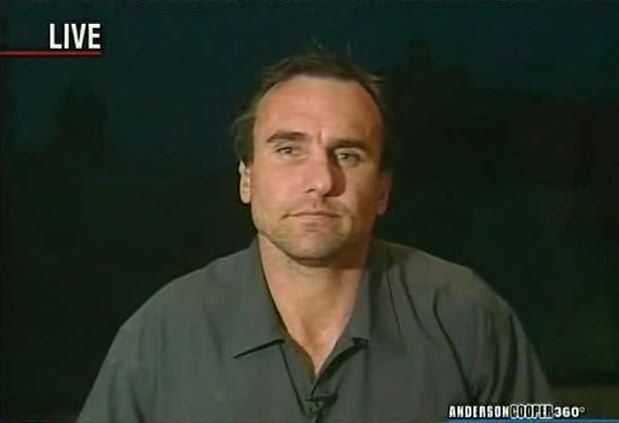AC: "This has been a bloody day in Diyala Province..."

Click photo to play
Length: 5:18
ANDERSON COOPER, CNN ANCHOR: Good evening, everyone.
We begin, sadly, with breaking news out of Iraq: a suicide car bombing with heavy loss of American life.
Let's go right away to CNN's Michael Ware in Baghdad.
Michael, what's the latest?
MICHAEL WARE, CNN CORRESPONDENT: Well, Anderson, all that we know right now is exactly what you have said, is that a suicide car bomb struck what's called a patrol base somewhere in Diyala, taking the lives of nine American soldiers and wounding 20 others.
However, of the 20 wounded, only five currently remain in hospital, according to the U.S. military. Now, this has been a bloody day in Diyala Province -- this is a province the size of Maryland, it's just north of the capital, Baghdad -- because we saw also yesterday another suicide car bomb targeting the provincial council.
This is a provincial council that was essentially suspended. It was unable to function for many, many months. And most council meetings, they don't get enough members attending to even have a legal quorum.
So this has been yet another awful day in a province that has long been plagued by wretched violence from al Qaeda, Shia death squads and all sorts of violent groups -- Anderson.
COOPER: Michael, you just came back from an embed in Diyala Province. The security situation, how bad is it there? What did you see?
WARE: Well, what's going on at the moment, Anderson, is that this, in many ways, has become the new front line against al Qaeda.
Way back last year, al Qaeda started shifting its operational focus away from the western deserts of Al Anbar Province and moved into Diyala. Diyala has been an al Qaeda stronghold almost since the beginning of al Qaeda's presence here three years ago.
Indeed, if you recall, the al Qaeda in Iraq leader, Abu Musab al- Zarqawi, was actually killed in Diyala Province. We have seen U.S. forces there -- the brigade that is currently there, about 5,000 troops, arrived at the end of last year. They have been just there six months so far. Now, the brigade before them, in one full year, lost 19 people. If you include these now nine further soldiers, this new brigade has lost 50 in six months. The level of violence in this province is almost double what it was one year ago.
The difference, however, is that, one year ago, it was Iraqis being killed, civilians. What's happened is, we have seen a shift in the violence targeting coalition forces and Iraqi security forces.
Now, the brigade commander up there, the leader of the Grey Wolf Brigade, the 3rd Brigade Combat Team from the 1st Cavalry Division, with many other units attached to it, has said that he is aggressively targeting al Qaeda. He is going into their safe havens.
In Diyala Province, al Qaeda has training bases. It collects taxes. It has entire regions which are firmly under its control where it has Sharia courts. It has declared much of Diyala Province as part of the Islamic state of Iraq.
And this combat brigade is attempting to wrest it back by going into the al Qaeda strongholds, battling with them in blazing, pitched fights that go for days and weeks, at enormous cost of American life, trying to take this province back.
COOPER: So, has anything in Diyala changed because of the increase in troops, of American troops, in Baghdad? The -- what was one time called a surge or an escalation -- is that occurring also in Diyala or is it simply in Baghdad?
WARE: Well, what we saw with the introduction of what's now almost 30,000 additional combat troops to the war here in Iraq, focusing on the capital Baghdad -- as you say, it's the surge -- is that we saw a furtherance of a trend that had already been well under way in Diyala Province.
Yes, when more troops came Baghdad, more al Qaeda went to Diyala to join the others who had already moved there. But let's not forget, this has been an al Qaeda stronghold for years. It ebbs, it flows. The level of activity changes, but they have been the preeminent insurgent force in that province for quite some time now.
Indeed, when the American brigade commander arrived there, he described the situation that al Qaeda considered that America owned the roads in that province, but they owned everything else. Well, he's been taking the fight to them. And this would be one of many acts of retaliation from al Qaeda.
COOPER: All right, Michael Ware, appreciate the latest from Baghdad.
Just to reiterate, nine American service members killed in a suicide attack, a vehicle-borne improvised explosive device, or a VBID, as the military calls them. We don't know exactly where it was in Diyala Province. We are trying to get more details. We will bring that to you as warranted.
